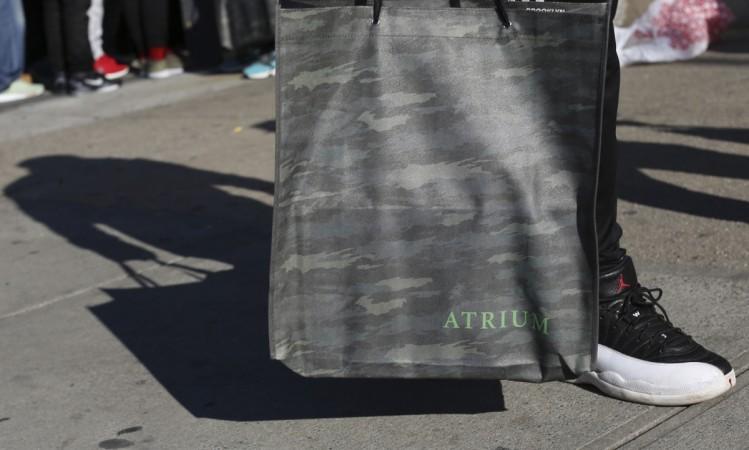
With Black Friday 2014 only days away in the United States, one is probably thinking of how to make the best choices amid a torrent of ads and mails accumulated in one's inbox and seen in other platforms.
While trying to figure out the best possible deals and offers for the biggest shopping day of the year could be a daunting task, adding to the woes are the deadly scams that would lure you to simply waste money for nothing at all. Hence, here is some relief.
Personal finance site 'WalletHub' carried out a survey and has come up with the top 10 stores that are giving the best discounts, deals and offers for the Black Friday shopping throughout the USA, as noted by Forbes magazine.
After surveying 5,525 Black Friday ad scans from 22 of the country's biggest retailers including chains such as Walmart, Kmart, Sears and more, the finance site has come to the conclusion that mall stalwarts JC Penny and Macy's are offering the most impressive deals.
Following are the 10 best stores to visit with the percent of aggregate discounts:
- JC Penny: 65.44%
- Macy's: 53.52%
- Rite Aid: 53.34%
- Meijer: 50.85%
- Sears: 50.19%
- Walgreens: 46.74%
- Office Depot and OfficeMax: 43. 89%
- Ace Hardware: 41.01%
- Kohl's: 39.89%
- Staples: 38.56%
As per this study, Walmart is on the 18th position with an average savings of 32.16%. Costco's Black Friday discounts are also disappointing with average discounts of only 21.14%
Scams to Avoid:
While the holiday season is also about shopping and gifts, it is also a time when fraudsters strike and rip one off of their savings. Here are some scams as noted by USA today that might possibly change your best shopping day of 2014 to the worst financial nightmare:
1. Fake Coupons:
According to Norton, the anti-virus software, holiday shoppers must be wary of coupons that look genuine in every way, but are actually fake. These fake saving opportunities are deadly cybercriminal's way of luring innocent shoppers to a website that will ask for their credit card information.
Best way to avoid this problem would be to refrain from clicking on any suspicious looking ads or coupons from social media sites or downloading phishing schemes disguised as coupons. Any coupon must be checked with official retail store for verification on whether it is legitimate.
2. Spam Emails/Text messages:
Shoppers must also be careful and stay away from spam emails or text messages that will lure them into clicking on fake links. Apple products are specially advertised on such spams because of their widespread appeal.
According to the FBI, the best way to avoid the email spams would be to check if you recognise the sender. If you didn't sign up to receive notifications from the address, it is probably a scam.
It is also important not to download any attachments from unsolicited e-mail address lest they should contain virus that can compromise your PC's privacy settings. It would be best to verify the purported email deals with the stores concerned.
3. Fake Products
During popular shopping seasons such as Black Friday, it is not uncommon for people to run into websites that promise great deals but are actually peddling fake goods. One must be careful and make sure that products they are buying are genuine.
Websites may try the tactic of selling expensive-looking goods at amazingly low prices, thereby cheating shoppers, who will end up with cheap knockoffs. Again, details of the product must be verified and one must be wary of bogus online classified ads.
4. Danger of Data Breaches
In 2013, retail giant Target suffered a massive data breach with over 70 million shoppers' card numbers, name, expiry date and DVV security codes being compromised or stolen. Other major retailers, which have also fallen victim to such data breaches recently include Home Depot and Neiman Marcus.
Although it is not always possible, paying by cash would be the best option to avoid data breaches. Or if one were given a choice between paying via Credit or Debit, one must choose credit, as it will be easier to dispute charges if the essential details of the card are stolen, notes USA Today.

















